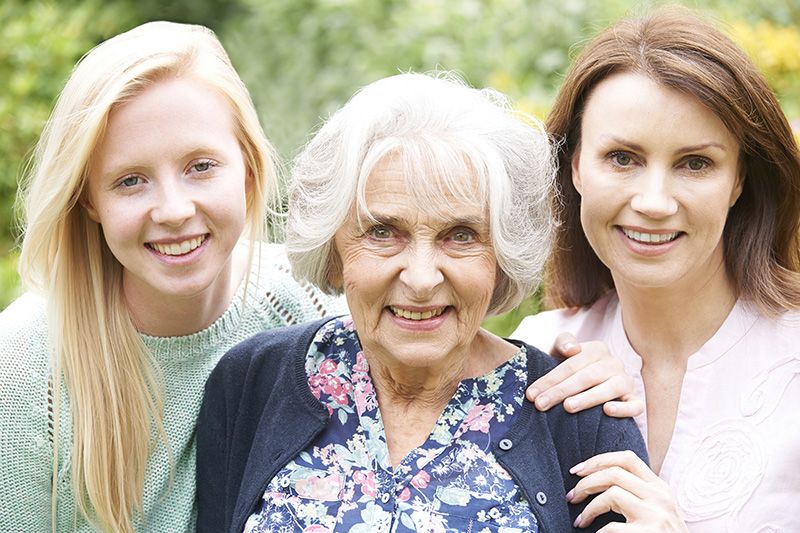Who Should Get Genetic Testing for Cancer?

Genetic testing can be beneficial in understanding your risk of inheriting cancer; however, not everyone is an ideal candidate. Approximately 5-10% of cancers are caused by an inherited cancer syndrome; therefore, genetic testing is only helpful in predicting cancer in a small percentage of individuals.
Research Within Your Family Before Considering Genetic Testing for Cancer
Certain types of cancers, like breast cancer, ovarian cancer, prostate cancer, pancreatic cancer, colorectal cancer, and endometrial cancer, are more likely to be hereditary. However, before deciding if genetic testing would be beneficial, you and/or your loved ones should put pen to paper, contact as many relatives as possible, and create a family cancer history map. Focus on filling in the cancer histories of as many first-degree (parents, siblings, and children) and second-degree (grandparents, aunts, uncles, nieces, and nephews) relatives as possible.
Who Is a Candidate for Genetic Testing and Genetic Counseling?
Genetic testing, and follow-up genetic counseling, may be warranted if one or more first- or second-degree relatives have been diagnosed with:
- A genetic mutation, such as BRACA1 or BRACA2
- Cancer that was diagnosed at an unusually young age (under age 50)
- Cancer in both organs of a set of paired organs, such as both kidneys or both breasts
- Unusual cases of a specific cancer type like breast cancer in a man or several different types of cancer that have occurred independently in the same person
- Multiple relatives (3 or more) with breast cancer, ovarian cancer, pancreatic cancer and/or aggressive prostate cancer
- Ovarian cancer at any age
- Two or more different types of cancer that have occurred independently in the same person
- More than 20 polyps in the colon
- Ethnic predisposition, specifically Ashkenazi Jewish ancestry
Take an online assessment
If you or a family member on either side of your family has had any of the above mentioned, please take our online questionnaire and consult with the VOA Genetic Counselors.
Lifestyle Overrules Genetics When It Comes to Cancer Risk
When you think about it, that’s actually very good news. You cannot do anything about the genes you were born with. You absolutely can control lifestyle factors (smoking, excess drinking, unhealthy eating habits, not exercising, excess sun exposure) that increase your cancer risks. For certain individuals, though, genetic testing can yield important information about cancer risk.
Are You Prepared Emotionally for the Results of Genetic Testing?
Even if you or your loved ones are deemed excellent candidates for genetic testing, that does not necessarily mean you should immediately set up an appointment to get it. Genetic testing can be potentially life-changing, and before you decide to pursue it, it’s smart to consider and prepare for the “what-ifs.” Additionally, when someone discovers they’re at increased risk of developing cancer, that may mean their close relatives have the same risk. Before someone undergoes genetic testing, it may be wise to discuss that with their close relatives and find out if they want to know the results (since the results could affect them, too.)
Discovering you are at increased risk of developing cancer can be scary. However, that knowledge may allow you to receive medical interventions that will reduce your risk (such as preventive mastectomies to reduce the risk of breast cancer). And, just because you learn you have an increased risk of cancer, that does not mean you will definitely develop cancer. If you would like to learn more about whether or not genetic testing is right for your loved ones, we encourage you to consider VOA’s genetic counseling program. Program participants gain expert guidance from physicians and nurses who specialize in cancer genetics and genetic counseling.
Listen to our podcast episode about the role of genetic counselors in genetic testing.
On this episode of Cancer Care Connections, Tifany Lewis discusses the valuable role genetic counselors play in the genetic testing process. Learn how genetic testing in the oncology setting provides personalized testing based on medical and family history vs the one-size-fits-all approach you get with the direct-to-consumer tests ordered online.


